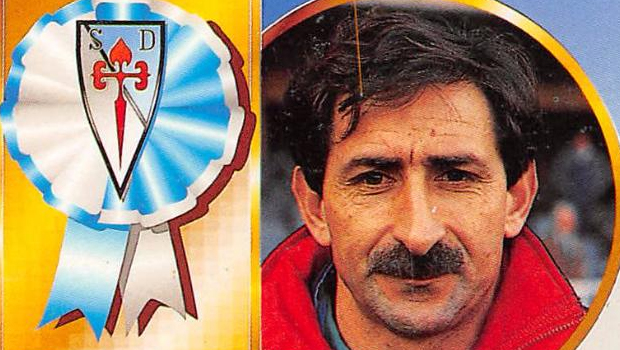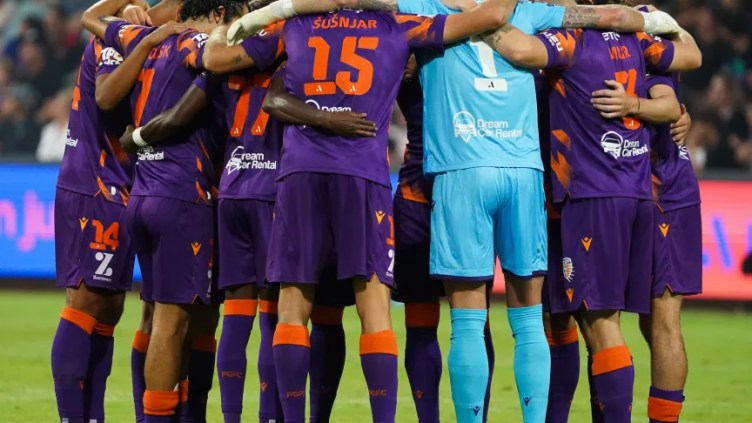The family name Castro is highly regarded in the Pontevedra province in Spain, but its honourable reputation is not solely attributable to a current Perth Glory superstar.
Fernando Santos Castro began his career in the dugout for his local club Pontevedra CF in 1983, when his son and current Perth Glory star, Diego Castro, was just one year old.
Castro Sr.’s illustrious career lasted 28 years and spanned some of the biggest clubs in Iberia, including Sevilla FC, SC Braga and Celta Vigo. He finally retired from football in 2011, fittingly finishing his coaching career back at Pontevedra CF where it all began.
Pontevedra CF, 1982-1988
Fernando Castro began his coaching career on Spain’s north-west coast at the age of just 29.
The following year, he became the Head Coach of the Galician side and led them to the Tercera Division (Spain’s fourth tier) title in 1983-84, earning promotion to the Segunda Division B.
Despite being the fresh-faced, newly-promoted team, Castro’s side went on to secure four successive top-half finishes in Segunda Division B and soon, their Head Coach would move across the Spanish third tier to fellow-Galician outfit, CD Arenteiro.

‘The Man with the Moustache’ would become a household figure in Galicia a few years later.
Club Deportivo Arenteiro, 1988-89
After arriving in 1988, Castro was unable to prevent the club from being relegated courtesy of a 17th-place finish in the 20-team competition (in which four teams were relegated).
It was a set-back for his career, but ironically, one that prompted the move that changed everything for him.
Sociedad Deportivo de Compostela, 1989-1995
Castro duly took the reins of Galicia’s capital-city football club, SD Compostela, who were languishing in the Tercera Division having narrowly missed out on promotion during the previous year. In Castro’s first year in charge, however, ‘Los Compos’ won the league and gained promotion to the Segunda Division B.
Castro would then spectacularly secure back-to-back promotions for SD Compostela, as they finished third in Group 1 of the Segunda Division B, before beating Badajoz, Alcoyano and Deportivo Alaves to earn a place in the Segunda Division (Second Division) via the league playoffs.
The level of competition changed drastically here. Instead of facing off against teams from similarly-sized provincial Spanish towns, SD Compostela were tackling Real Madrid and Barcelona’s ‘B’ sides, Malaga and several other high-profile clubs.
It may have been their first appearance at such a lofty level, but nonetheless, the upstarts were as sturdy as ever, finishing 8th in their first season and 12th in their second.
It was in the 1993-94 season, however, when Castro would help ‘Los Compos’ achieve the unthinkable.

Spanish paper El Mundo Deportivo reports on Compostela’s 3-1 win over Rayo Vallecano in the battle for La Liga promotion.
The only Galician side in the competition, Compostela were narrowly pipped to the Segunda title by RCD Español who finished three points ahead of them. Finishing third (two points behind Real Betis), they were forced into the playoffs for promotion to La Liga, a level of football their fans had barely even dared to dream of during the club’s previous 32-year existence.
Over two legs, Compostela ground out a 1-1 away-goals win over Real Valladolid, before completing the fairytale in Oviedo where a brace from Nigerian star Christopher Ohen helped them to a 3-1 play-off final win over Rayo Vallecano.
And so, incredibly, little Compostela found themselves in La Liga for the very first time.

The joy of promotion: SD Compostela celebrate with their fans in 1994.
Once again, Castro’s men were the new boys in a big new league, except this time they had reached the very top and inevitably, it was tough going.
Nonetheless, they somewhow managed to hold eventual champions Real Madrid, who included the likes of Michael Laudrup, Fernando Hierro and a young Raul Gonzales in their ranks, to two draws.

Real Madrid were a serious force in 1994-1995, and Castro’s Los Compos drew twice to them during that season.
Helped by those valiant displays against ‘Los Blancos”, SD Compostela eventually finished 16th, narrowly avoiding relegation back to the Segunda Division as they picked up 11 wins from 38 matches. Other highlights of the season included completing the league double over Galician rivals Celta Vigo, a 2-1 home victory over an Atletico Madrid side that featured current Head Coach Diego Simeone and only losing five matches at home.
The end of that survival campaign, however, marked time to move on for Castro as Celta Vigo came calling for his signature.
And little wonder, given that in the space of just six years, he had taken SD Compostela on an incredible journey from the depths of Spain’s fourth division to the rarified atmosphere of La Liga.

One of ‘El Phenomeno’ Ronaldo’s most famous goals came against SD Compostela.
SD Compostela today
Castro’s former side remained in La Liga for three more seasons, finishing 10th, 11th and then 17th in 1997-98 when they were relegated back to the second tier.
And although they managed to make the Copa Del Rey quarter finals in 1999-2000 following a memorable Round of 16 penalty shootout victory over Villareal, a steady decline set in.
The club faced a number of financial issues, including failing to pay its wage bill and twice slipped down as far as the Galician Regional Preferente, the fifth tier of Spanish football.
Today, they compete in the Tercera Division (fourth tier), but have never threatened to return to the dizzy heights they reached under Castro.
Look out for part two of The Magnificent Managerial Career of Fernando Castro later this week, where we go through his time at Celta Vigo and his move to one of Portugal’s leading clubs.
(A big thank-you to Denis Iglesias, who wrote this amazing article in Spanish and was our key source: http://highbury.es/2016/sd-compostela-96).




